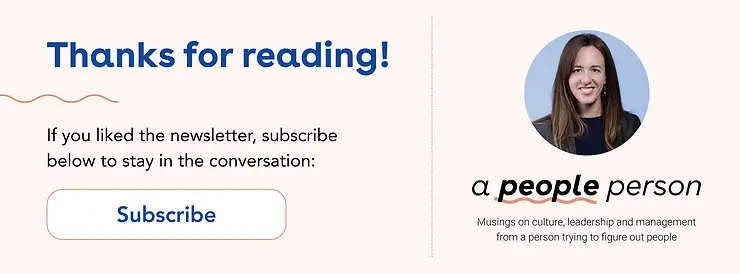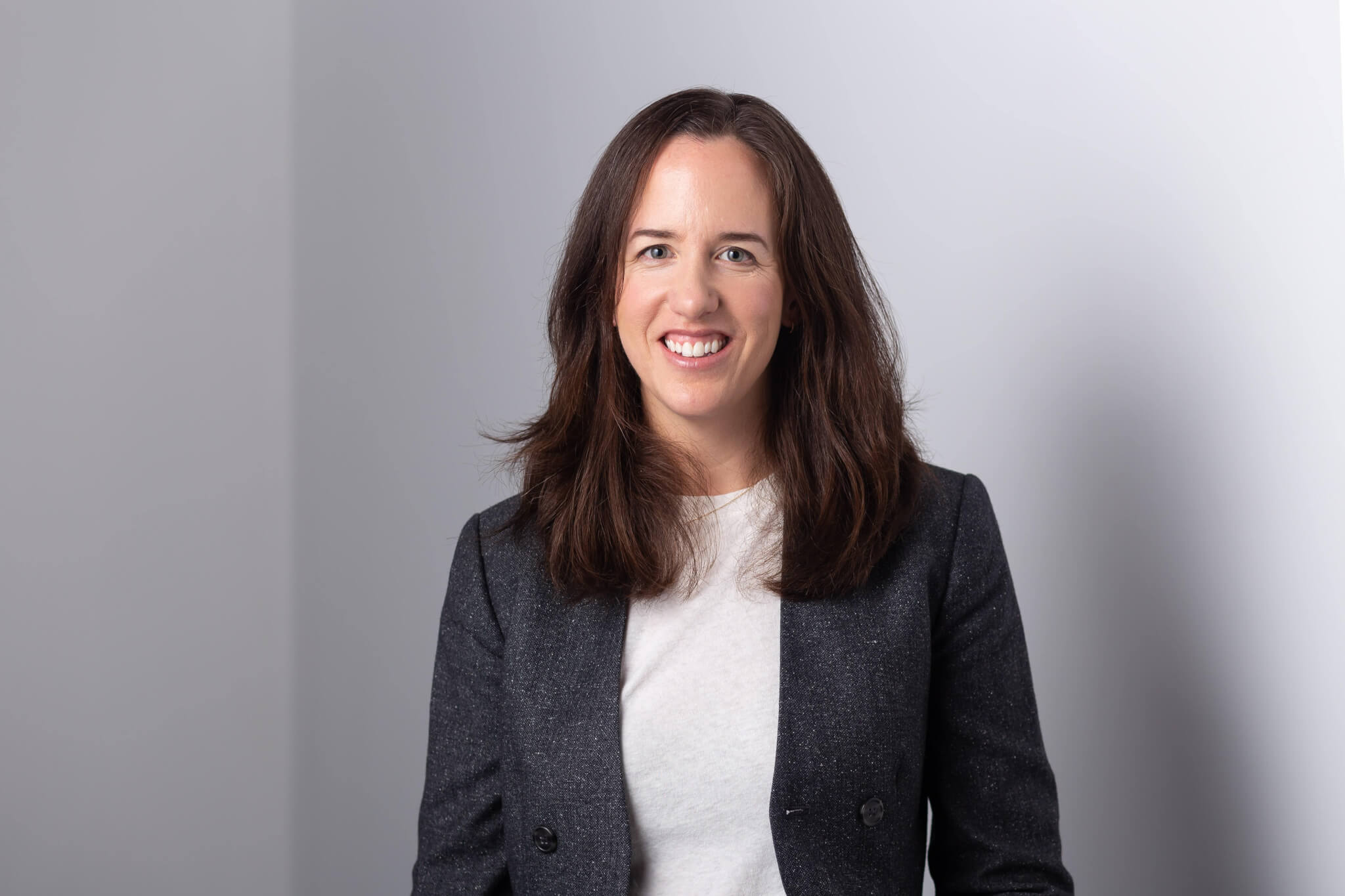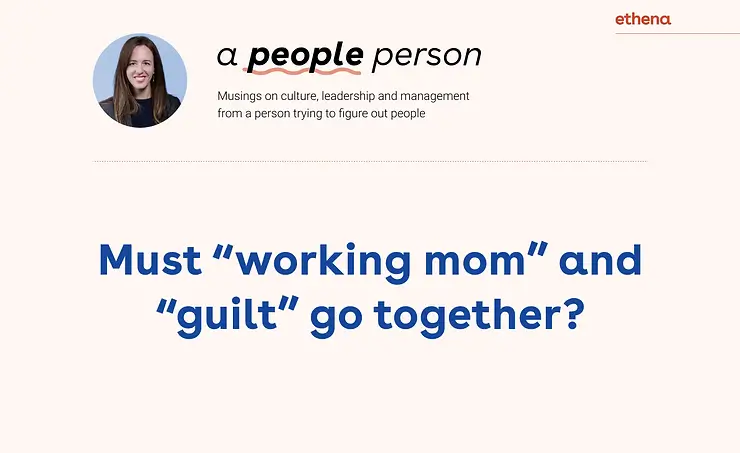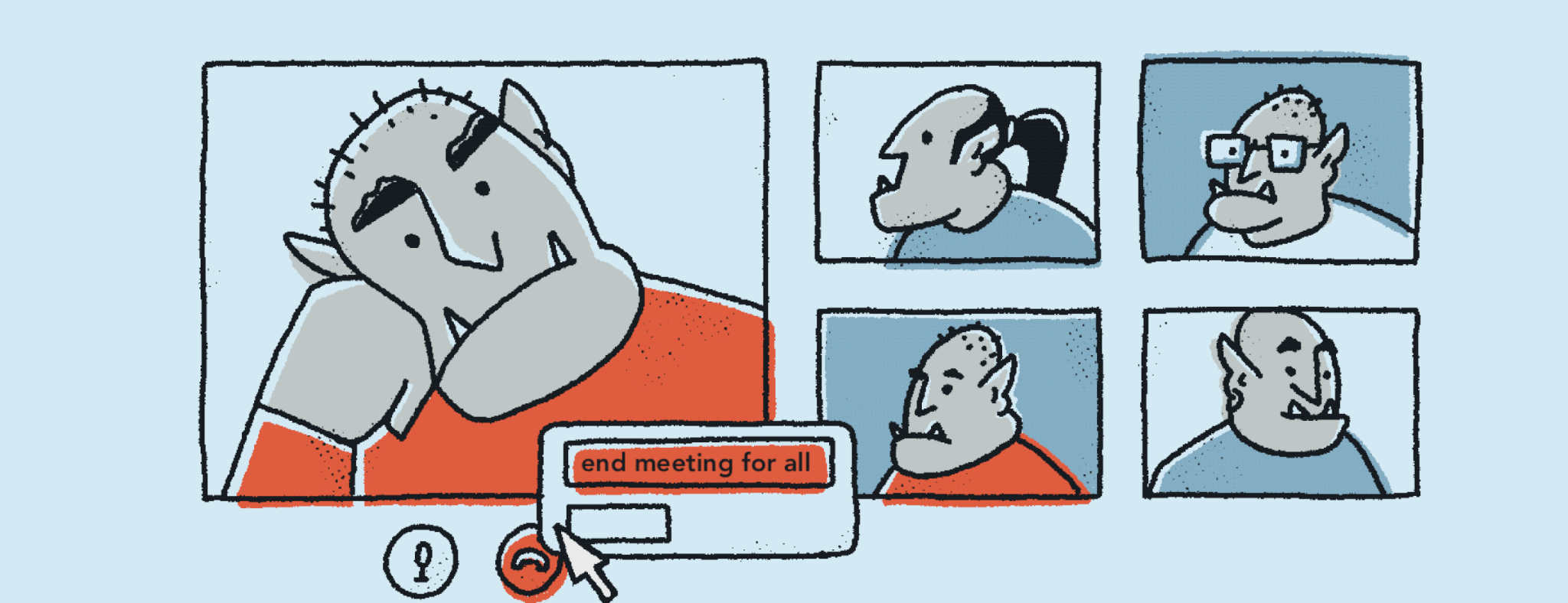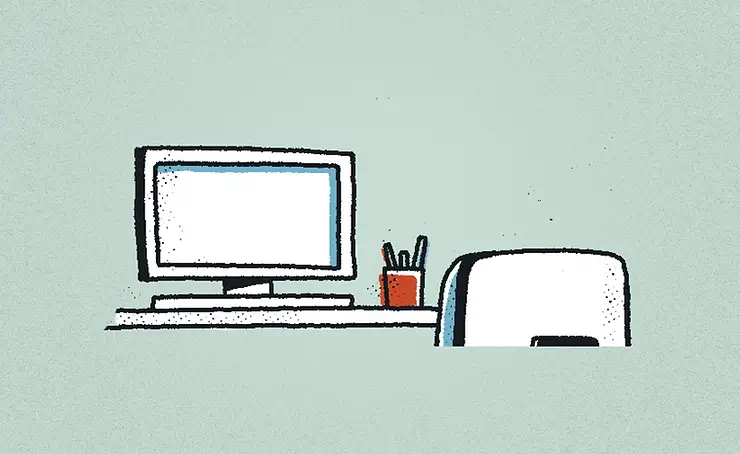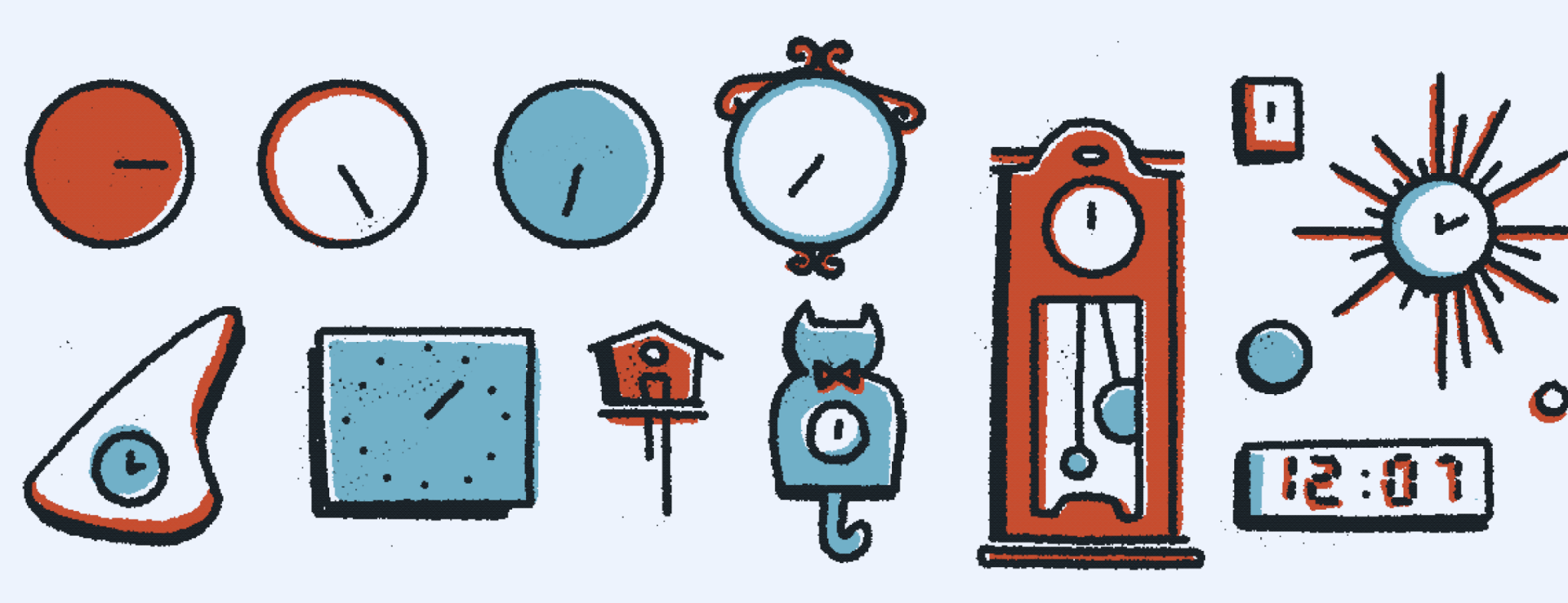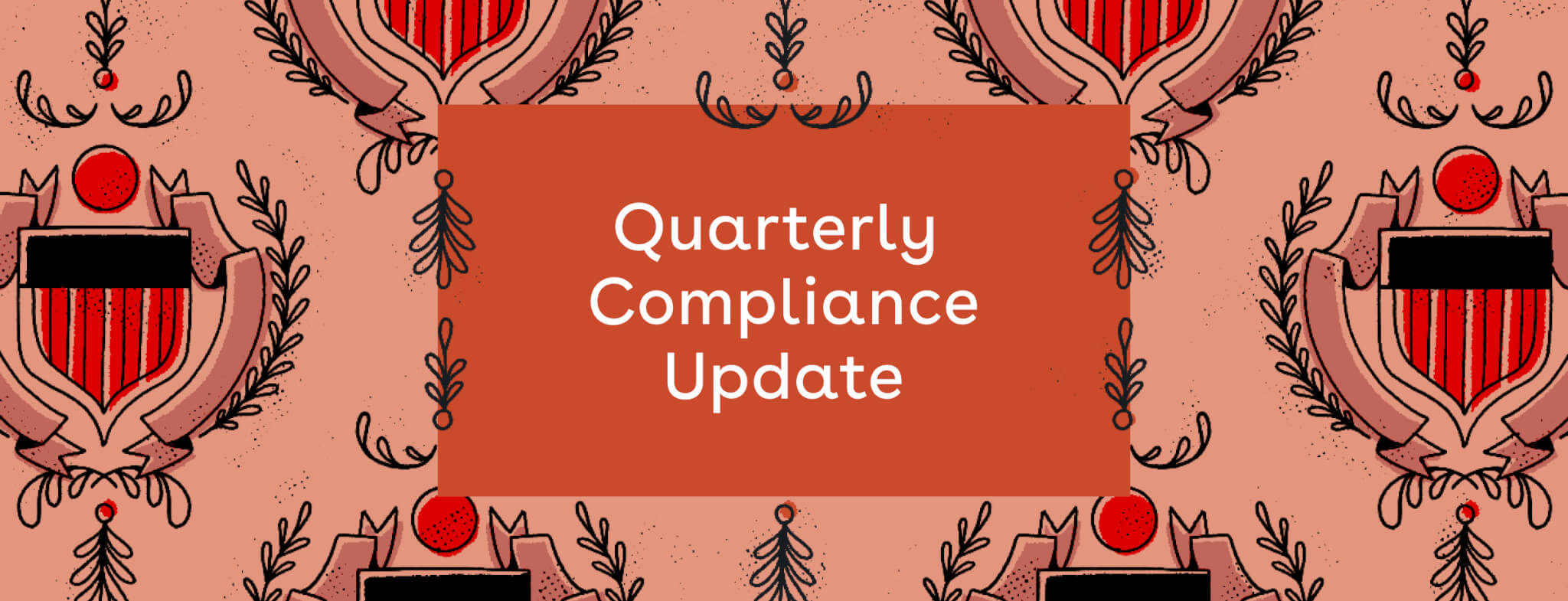Hi there,
It is a truth universally acknowledged that if you are a mom who works outside the home, you must publicly profess to feeling guilty.
You must perform hand-wringing about how you miss key moments in your child’s life and feel like you’re underperforming at both your paid job and your societal duty to rear children.
And it’s very likely that you do feel guilty some of the time! I was literally giving a talk about being a working mom when my mom, who was watching my son, texted me to say, “Baby D just took his first steps!” I was both proud and livid. Was my son trolling me?
But, even when I feel sad about the long days and the missed time, the fact remains that I love what I do as an entrepreneur and CEO. I don’t only feel guilty. I feel excited and challenged.
That’s why I was so grateful to have a conversation about working as a mom that left me feeling, as the kids say, some type of way… and have that way be positive. I realized how rare it was to have a conversation about work and motherhood and leave feeling upbeat. So much of working-mom discourse is a downer, and it doesn’t need to be that way. A quick note before I start so that I receive fewer angry emails: People have thoughts on the phrase “working mom.” Yes, moms who don’t work outside the home are absolutely still working. But also, there’s no equivalent conversation around the right phrase for “working dad,” so managing semantics here feels secondary. Here, I’m going to say “working mom,” since it’s shorter than “moms who work outside the home.”
WORKING AS A MOM
My conversation with Merritt Anderson
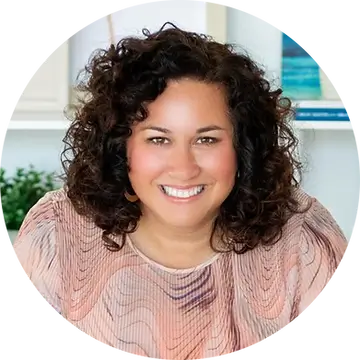
Merritt is a mom, lawyer, and legit People Person, having run various forms of the People function at places like GitHub, Abstract and Kaiser Permanente. I got to know her early on in my Ethena journey, and I reached out because 1) she shared this amazing article by Serena Williams 2) I noticed that she has “Mama x3” in her LinkedIn bio.
I’ve been reluctant to be too public about my mom-status in professional settings because I worry about getting pigeonholed as a woman who talks too much about being a mom. So that’s where I started my conversation with Merritt. Merritt shared that, in a kind way, she thought that wasn’t a valid concern.
Instead, here’s how she thinks about it:
- The skills you need/learn as a parent are related to skills you need in the workplace. In fact, she helps women translate the skills they have in the home to their resume.
- She sees identity as something foundational to who you are that can’t be stripped out. This reminded me of the phrase, “How you do anything is how you do everything.” (Something Peloton instructor Jess Sims says to get me to do more reps.) If you’re an organized mom, you’re an organized CEO.
Kids these days
Merritt is easy to talk to, so somehow we got on the topic of generational differences in the workplace. (No, I did not ask if Gen Z was ruining everything with quiet quitting or if millennials are eating too much avocado toast.) Merritt shared that at Kaiser she helped to develop and facilitate training on generational differences for the Northern California Employee Resource Groups (ERGs). And that was ten years ago! Talk about being ahead of the curve. They’d split up into small groups and talk about how they were raised, what life was like then, big social and political events of the time, how they were raising their kids (if they were parents), etc. The idea was to become better healthcare professionals and colleagues by understanding generational differences and developing a shared way to talk about them. I think it was and is a brilliant idea. Better to have those conversations in a structured way rather than to quietly assume that your colleague “just doesn’t get you.”
Replace the guilt in being a working mom
I saved the best for last. I asked Merritt how she talks about her own work with her kids (her eldest is 12). My son is not yet ready for that conversation, but I was curious. (Though, if I worked in construction, I think he’d leap at the chance to talk about excavators, so maybe I just went into the wrong industry.) I wanted to hear about Merritt’s approach, because (eventually) I’d love to be able to share that part of my life with my son. Merritt shared that she absolutely brings work home, hard not to since she has embraced the remote and hybrid work life well before COVID – she practices talks she’s going to give by delivering them to her kids and getting their feedback. She even shares the hard stuff, like making the difficult decision to lay people off and developing the plan on how to do it with compassion and care for the people. As a biracial woman of color, raising her family and working in the Silicon Valley, she talks regularly and shares age-appropriate books and articles with her kids about racial justice, tech, and inequality. I loved hearing how Merritt incorporates work into her home life because there’s such value in having kids understand more about the world and their parents as, well, people. People who have passions and interests. People that are doing important and meaningful work outside of the home. For a school assignment, Merritt’s daughter was asked to write what Merritt does for work. She wrote that she “helps people,” which is really cool.
Overall, my conversation with Merritt left me feeling thankful to flip the script on what it means to be a working mom. Instead of guilt over all I could be depriving my son of, I took away confidence that my work experience makes me a better parent and vice versa. Sure, if I see “my mommy builds great companies” on an assignment, I will absolutely burst into tears, but they’ll be the good kind.
What I'm reading:
A Brewery’s Anti-Violence Mission, Complicated by a Killing:
This New Yorker article about a brewery with a social justice mission is wild and troubling.
Until next time, Roxanne Petraeus CEO & Co-founder, Ethena
